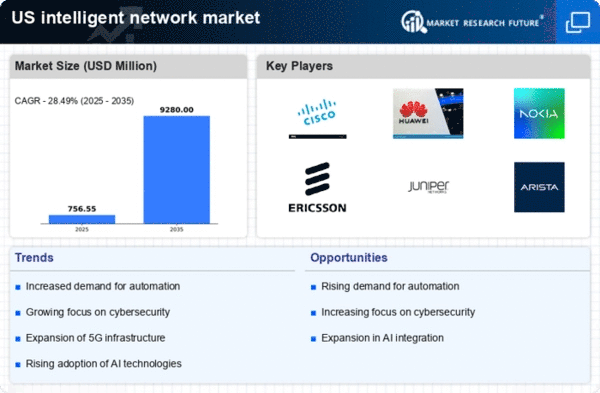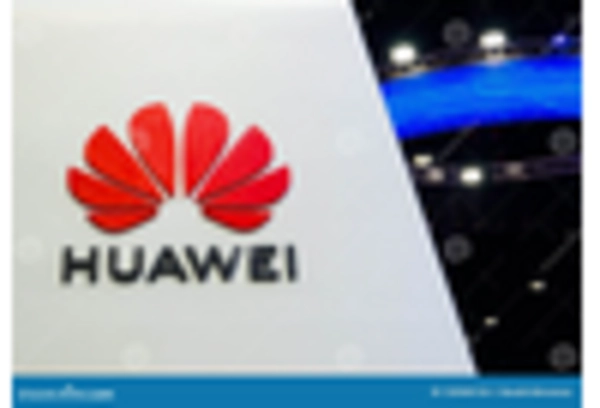Emergence of 5G Technology
The rollout of 5G technology is poised to have a transformative impact on the intelligent network market. With its promise of ultra-fast data speeds and low latency, 5G is enabling new applications and services that require advanced networking capabilities. The intelligent network market is likely to see increased investment as businesses seek to leverage 5G to enhance their operational efficiency and customer experiences. Analysts predict that by 2025, 5G connections will surpass 1 billion globally, creating a substantial opportunity for intelligent networking solutions that can support this new technology. This emergence of 5G is expected to drive innovation and competition within the intelligent network market.
Integration of IoT Devices
The proliferation of Internet of Things (IoT) devices is significantly influencing the intelligent network market. As more devices become interconnected, the complexity of managing these networks increases. Organizations are compelled to adopt intelligent networking solutions that can handle vast amounts of data generated by IoT devices. It is estimated that by 2026, there will be over 30 billion connected devices globally, which underscores the urgency for robust network management solutions. The intelligent network market is adapting to this trend by offering solutions that enhance visibility and control over IoT networks. This integration not only improves operational efficiency but also enables businesses to harness the full potential of IoT technologies.
Shift Towards Cloud-Based Solutions
The transition to cloud-based solutions is reshaping the landscape of the intelligent network market. Businesses are increasingly migrating their operations to the cloud, necessitating the need for intelligent networking solutions that can support this shift. Cloud-based networks offer scalability, flexibility, and cost-effectiveness, which are essential for modern enterprises. Recent studies indicate that the cloud services market is expected to reach $832 billion by 2025, reflecting a growing reliance on cloud infrastructure. This trend is driving the intelligent network market to innovate and provide solutions that seamlessly integrate with cloud environments, ensuring that organizations can maintain high levels of performance and security.
Rising Demand for Network Efficiency
The intelligent network market is experiencing a notable surge in demand for enhanced network efficiency. Organizations are increasingly seeking solutions that optimize data flow and reduce latency. This trend is driven by the need for seamless connectivity in various sectors, including telecommunications and enterprise IT. According to recent data, the market for intelligent networking solutions is projected to grow at a CAGR of approximately 15% over the next five years. This growth is indicative of a broader shift towards more efficient network management practices, as businesses aim to leverage advanced technologies to streamline operations. The intelligent network market is thus positioned to benefit from this rising demand, as companies invest in innovative solutions that promise improved performance and reliability.
Regulatory Compliance and Data Privacy
The intelligent network market is also being shaped by the increasing emphasis on regulatory compliance and data privacy. Organizations are under pressure to adhere to stringent regulations regarding data protection, which necessitates the implementation of intelligent networking solutions that ensure compliance. The market is witnessing a rise in demand for solutions that provide enhanced security features and data management capabilities. As of 2025, it is estimated that compliance-related expenditures will account for approximately 10% of IT budgets in many sectors. This trend indicates a growing recognition of the importance of data privacy, positioning the intelligent network market as a critical player in helping organizations navigate these complex regulatory landscapes.
















